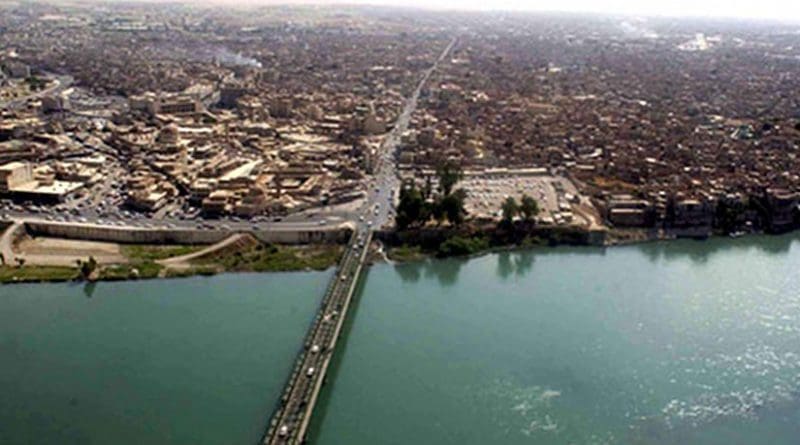US Defense Officials Hail Iraqi Forces’ Progress In Eastern Mosul
By DoD News
By Lisa Ferdinando
Iraqi security forces Friday reached key buildings in eastern Mosul and raised the Iraqi flag there; an event that U.S. defense officials hailed as important progress in liberating the city from the Islamic State of Iraq and the Levant.
Iraqi forces reached the Nineveh governorate and counsel buildings, according to Elissa Slotkin, the acting assistant secretary of defense for international security affairs.
“It’s both a symbolic victory and a significant operational victory. [I’m] so thrilled to see that the success continues, and we got that momentum that’s so required,” Slotkin told reporters at a Pentagon news briefing today.
In a statement, the spokesman for Combined Joint Task Force – Operation Inherent Resolve congratulated the Iraqis on their continued progress in eastern Mosul.
“Work still needs to be done, but ISIL’s days in Mosul are quickly coming to an end,” Air Force Col. John Dorrian said in the release.
The counter-ISIL campaign continues to target senior ISIL leaders, including Abu Bakr al-Baghdadi, Pentagon Press Secretary Peter Cook said at today’s briefing with Slotkin.
The coalition is continuing to apply pressure and gain territory in Iraq and Syria, Cook said.
“We’re going to continue to use that intelligence and use what we learn about their movements, about their activities to try and again intensify the pressure, including intensify the pressure on senior ISIL leaders,” he said.
Defense Secretary Ash Carter and Marine Corps Gen. Joe Dunford, the chairman of the Joint Chiefs of Staff, recently outlined efforts to remove ISIL leaders from the battlefield, Cook said.
“The secretary and the chairman, I think, echoed here that those leaders should be worried about their safety at this moment in time, and that includes Baghdadi,” Cook said.
‘Momentum, Simultaneous Pressure’
ISIL is a global threat that requires a global response, Slotkin said. “Momentum and simultaneous pressure” are required in the fight, she said.
“We have learned through many, many years that unless there is simultaneous pressure across multiple ends of their flank, they just have the ability to disappear and pop up somewhere else,” Slotkin said.
In addition, she said, it is necessary to work “by, with and through” local partners in order for a “success to stick.” For example, coalition members are working with Iraqi forces at the pace and timing of the local forces, Slotkin said.
Stabilization and governance are critical to success as well, she said.
“It cannot be left out if you want to actually have a lasting defeat,” she said. “It’s something that is sometimes harder to do than the military victory but it is absolutely required.”
And, in a statement released Friday, Cook reported on the recent death of an Al-Qaida in the Arabian Peninsula terrorist leader. On Jan. 8, U.S. forces conducted an airstrike in a remote area of al-Bayda governorate, Yemen, resulting in the death of Abd al-Ghani al-Rasas. That strike, Cook said, removed an AQAP senior leader and facilitator in the area, and will disrupt AQAP’s terrorism operations in Yemen and the region.
The United States remains committed to eradicating the threats posed by al Qaida and denying them safe haven, Cook said. The operation, he added, is an example of the U.S. government and its allies’ commitment to the people and the government of Yemen to detect, deter, disrupt and defeat violent extremists who threaten progress in the region, as well as threaten to conduct terrorist attacks against innocent people in the region and around the world.

